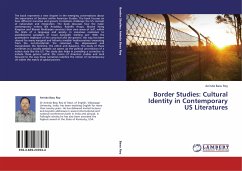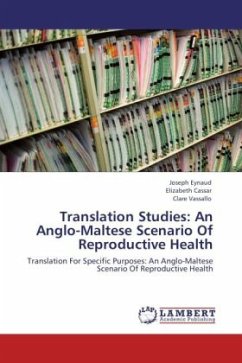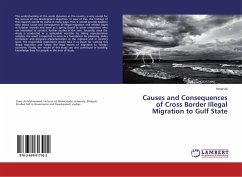
Border Studies: Cultural Identity in Contemporary US Literatures
Versandkostenfrei!
Versandfertig in 6-10 Tagen
37,99 €
inkl. MwSt.

PAYBACK Punkte
19 °P sammeln!
The book represents a new chapter in the emerging conversations about the importance of 'borders' within American Studies. The book focuses on how different narrative and generic formations challenge the US concept of nationalism and integration. The book discusses how the major contemporary writers like Anzaldua, Rudolfo Anaya, Maxine Hong Kingston and Bharati Mukherjee construct their own sense of 'self', within the limits of a language and society, in conscious resistance to assimilationist paradigm of Israel Zangwill's 'melting pot'. With the postmodern implosion of the canonical and the g...
The book represents a new chapter in the emerging conversations about the importance of 'borders' within American Studies. The book focuses on how different narrative and generic formations challenge the US concept of nationalism and integration. The book discusses how the major contemporary writers like Anzaldua, Rudolfo Anaya, Maxine Hong Kingston and Bharati Mukherjee construct their own sense of 'self', within the limits of a language and society, in conscious resistance to assimilationist paradigm of Israel Zangwill's 'melting pot'. With the postmodern implosion of the canonical and the generic, the way has been cleared for many marginal and hitherto invisible 'multinarratives' emanating from the non-Occidental, the colonized, the dispossessed and marginalized, the feminine, the ethnic and diasporic. The study of these narratives as a socially symbolic act opens up the political unconscious of a nation state like the US. The study also helps in providing a corrective to include these genres within the canon of American studies and look forward to the way these narratives redefine the notion of contemporary US within the matrix of global powers.












